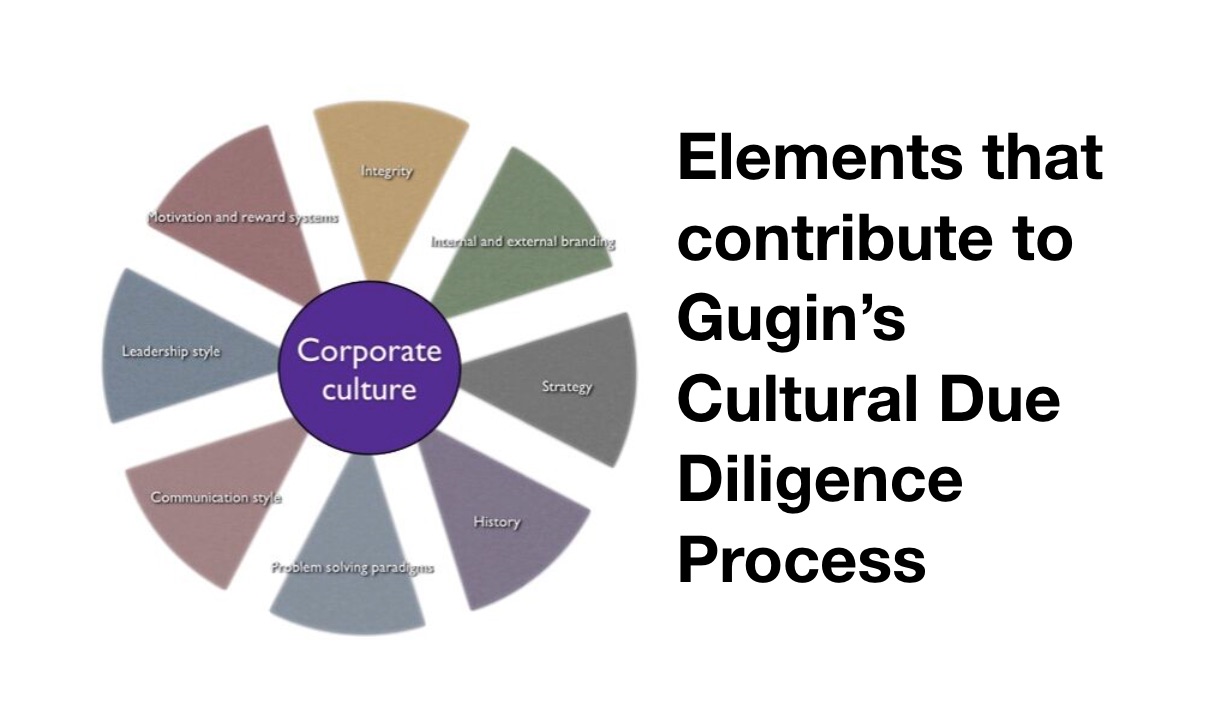Changing Corporate Culture
In a fast-changing world, your organisation needs to be able to adapt to changes rapidly as well in order to remain attractive to employees, customers, investors and all the other stakeholders. That is why the process of changing corporate culture must be an ongoing process in any organisation. The norms and values in society change all the time and you have to change with them. Work conditions that were accepted 40 years ago are no longer accepted. Our expectations of what a good leader changes too for every new generation that grows up. If you don't adjust your corporate culture continuously you will end up not being able to attract the next generation of employees and customers.
Here we will explain how Gugin is changing corporate culture together with our clients.
Why is Corporate Culture important?
Your corporate culture is important because it is what keeps your organisation together. It is the glue that makes employees and managers feel that they have something in common. When people feel they have something in common they develop a shared responsibility for succeeding, which is essential for any organisation or any group.
Forbes Magazine writes about developing a positive company culture. But it is much more complex than that and our CEO, Dr Finn Majlergaard has contributed to several articles on the topic, including this one in Financier Worldwide.
SHRM has made a list with 10 tips for changing a company's culture. Their list is more or less an extract of some of the activities we have built into the change process
Changing a company's corporate culture is extremely complex because it is all about feelings, emotions, fears, aspirations, traditions and of course cultural norms and values.
Your brand is a lot more than your products or services. It is also your company culture and when you have a strong admirable corporate culture your customers will be willing to pay more for your products and services. Furthermore, your employees will be willing to work for less money if you have an attractive corporate culture.
When you have a great product and a fantastic corporate culture you have a huge competitive advantage because your customers will remain loyal to you despite that your products or services are more expensive or maybe not state of the art.
But it doesn't happen by itself as it requires a constant change in the corporate culture.
Anyone can copy your product but no one can copy your corporate culture
Changing corporate culture is paramount in a globalised world
Developing a corporate culture that supports your strategy is a complex task
You cannot just define your corporate culture and then expect your organisation to live it out. Even if you do nothing a corporate culture will grow out - but most likely not the one you want.
A corporate culture - or any culture - for that matter, is a product of many different factors, which we will outline below. You can only change the culture by adjusting the influencing factors. That is why corporate culture development has to be an iterative, never-ending process.
What are the requirements for a good corporate culture?
The first question we ask when initiating a corporate culture development process with a client is: "What do you want the culture to do for your organisation?". The answers can, of course, be very different, but the requirements remain almost the same, namely:
- It must support the strategic goals and objectives of the organisation in the best possible way
- It must be both suitable, feasible and acceptable for the employees, customers and all the other stakeholders
- It has to promote the desired behaviour
You might also like this
Book Dr Finn Majlergaard for a thought-provoking and energising speech or workshop on how you can create competitive advantage from elevating the level of cultural intelligence in your organisation
The key levers to work with when changing the corporate culture.
Gugin assesses each lever separately in your organisation in relation to the strategic objectives and key challenges of the organisation. It is a quantitative and qualitative process where we collect existing information, observe, interview people and use tailored questionnaires. The analytical process will produce your cultural DNA, which tells you who you really are.

Phase 1: Assessment
We compare the Cultural DNA we discover through the cultural due diligence process with the cultural DNA you should have in order to support your strategic objectives in the best possible way.
We outline the gab for each component in the cultural DNA and develop plans for how to fill these gaps.
Phase 2 Iterative Implementation
When we know what has to be done and we have prioritised the tasks together with you we will start facilitating the implementation process.
You will be highly involved in this process because it is a cultural change process that will go on forever and you need to acquire the skills to do it yourself.
Your company’s corporate culture will have to go through a constant change like any other culture in order for you to remain competitive, remain attractive to customers, employees and any other stakeholder.
Gugin will stay with you as long as needed
What are the main outcomes of working together with Gugin?
- Lower operational costs
- A winning, long-term sustainable corporate culture
- An organisation with lower undesired employee turnover
- Improved organisational effectiveness
- Improved operational agility
- Increased customer- and employee satisfaction
- A more admired company
This is how we work together with you
Cultural due diligence:
We assess the 8 levers through quantitative and qualitative analysis (questionnaires, observations and interviews). The Cultural due diligence either forms a baseline or lead to a gap analysis between the current and desired state. Gugin does most of the work, but we need your availability and support
Develop corporate culture change plans
We facilitate the change of the corporate culture by changing the levers, one at a time, and assess the results. It is an interactive and iterative process between Gugin and your senior management team. We will come up with a suggestion for you how to implement the changes and in which order, but at the end of the day it is entirely your decision.
Delivering tangible results – fast
Reducing costs or employee turnover are some of the most common drivers for changing the corporate culture. We always work on delivering visible and tangible results fast as they serve as a key motivator for other changes that might take a little longer time. Changes to communication style are often the obvious place to start together with adjusting the motivation- and reward systems.
